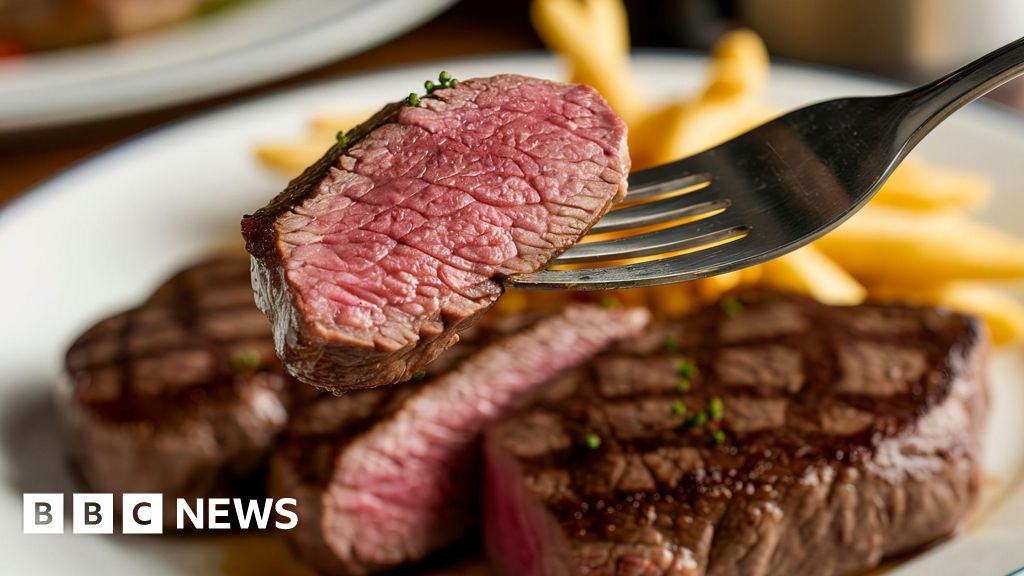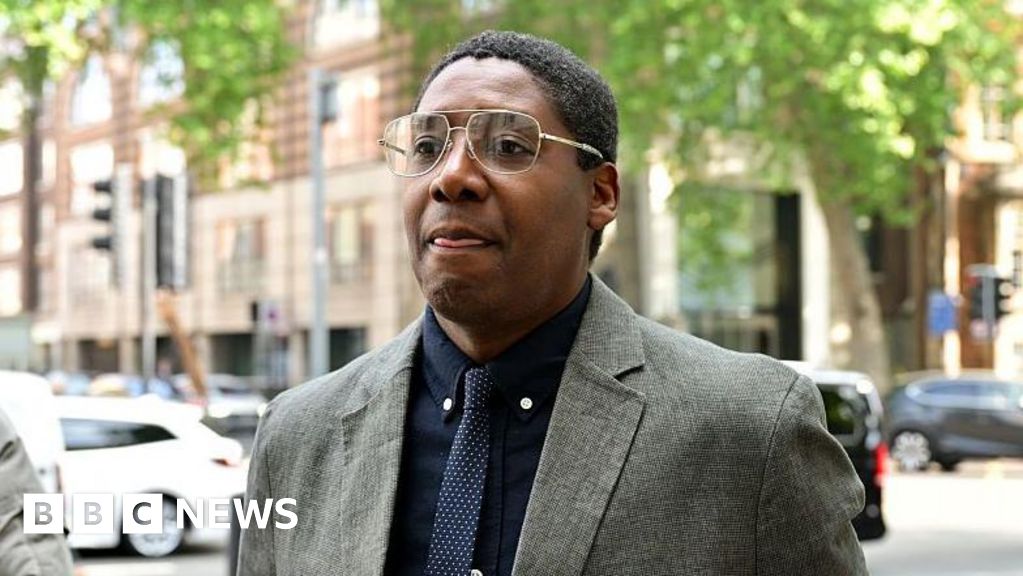Watch: A look back at the BBC's 1957 April Fool's spaghetti harvest
Some 68 years ago today, millions of people tuned into a BBC Panorama report about a Swiss family harvesting spaghetti from trees.
It may sound implausible, but many viewers believed it.
Watch the grainy black-and-white footage today and you almost forget everything you know about Italian cuisine for a moment.
The actors "harvesting" spaghetti strands give committed performances, and the late Richard Dimbleby's deadpan narration lends an air of authenticity to the report.
It was, of course, an April Fool's Day joke.
For the avoidance of doubt, spaghetti is made from wheat and water. It does not grow on trees.
But spaghetti was not a common dish in the UK at the time, so you can see why some may have taken it seriously.
This vintage Panorama report is part of what became a tradition in the UK press.
Every year on 1 April, newspapers would publish outlandish stories with zero or very little basis in fact, all to have a bit of fun with their readers.
The Guardian ran an entire pull-out guide to the fictional Indian Ocean island of "San Serriffe" in the 1970s. Its name is a pun on the sans serif group of typefaces, and the island was depicted as being shaped like a semi-colon.


San Serriffe does not exist, but Mauritius (pictured) does
Ten years ago, April Fool's stories in the newspapers were so prevalent that the BBC published this roundup of them.
Many focused on the looming 2015 general election, with the Sun's election website saying then-Labour leader Ed Miliband had died his hair blond in a "desperate bid for the BoJo [Boris Johnson] factor".
It is unclear whether the move would have swayed the election had this story been true.
The Scottish independence referendum was the focus on 1 April 2014, with the Daily Express, the Daily Mail, the Sun and the Guardian all publishing prank stories that year.
The Guardian, for example, said an independent Scotland would switch to driving on the right.
Reading through the papers today, you might find one or two April Fool's Day stories. But they do not have the same presence they once had.
The rise of social media has ushered in a "different kind of relationship" between readers and the press, says Stuart Allan, professor of journalism and communication at Cardiff University.
"We are enmeshed in an era of 'fake news' and disinformation, where matters of trust are at the forefront of editors' minds," he tells the BBC.
The decline of April Fool's Day news stories comes against "a backdrop of growing scepticism about news in general," Prof Allan adds, "where playing with journalistic credibility may actually prove damaging".
Jim Waterson, who edits news website London Centric, agrees.
"Publishing fake news to purposefully trick readers and then saying it's all a joke doesn't really work well when you spend the rest of the year banging on about how much trusted facts matter," he says.
"But the biggest crime against journalism is that very few newspaper April Fool's stories are remotely funny."
The global political climate, with Donald Trump's re-election to the US presidency, has also had an impact.
"If you've got world leaders who are only too happy to dismiss anything factual they don't like as 'fake news', why would you give them the ammunition of literal fake news?" Mr Waterson asks.

 Getty Images
Getty Images
Don't expect to laugh like this when reading the newspaper on 1 April
Social media also makes it easy to take a news story out of context.
People used to read their news in a newspaper. They'd be aware, on 1 April, that all of the news stories were published that day. The tell-tale date was at the top of the page.
Now, readers can share online news stories on social media days, months or even years after they were first published.
Many people share news articles without reading a single word of them, according to a Columbia University study. So are they likely to read the publication date?
Then there is the rise of generative AI, which has been widely used in the spread of misinformation in recent years.
In a world where AI-generated images can appear almost real, the media's role of separating fact from fiction has never been more important.
April Fool's stories serve the entertainment function of journalism, but not truth or accuracy, says Dr Bina Ogbebor, a lecturer in journalism studies at Sheffield University.
In some cases, these stories could "backfire", make some readers angry, and hamper a media organisation's credibility, she tells the BBC.
"It's still something that makes people laugh," she says, adding she thinks news websites should add very clear disclaimers if they do choose to run them.
Though news publishers have taken a step back, the April Fool's tradition is alive and well on social media. But it is brands, not broadcasters, that are leading the charge.
Each year, many of them post announcements for new products or promotions that are slightly too ridiculous to be genuine.
Tesco once announced it would be trialling trampoline-inspired bouncy aisles in its supermarkets.
But brands could find themselves in hot water for playing tricks on newspapers without letting them in on the joke.
In late March 2021, Volkswagen claimed it was changing its name to "Voltswagen" in a nod to electric vehicles.
Dozens of publications had to publish corrections when it was revealed to have been an April Fool's prank sent to the media early.
Based on current trends, it is unlikely we will see an April Fool's hoax on the scale of Panorama's spaghetti report any time soon.
"The Spaghetti Harvest story of 1957 landed with such a splash because of the very limited news brand choice in those days," says Richard Thomas, media professor at Swansea University.
Thanks to the wider range of news sources available instantly on the internet, "the joke is dead before it even takes its first breath", he adds.
"So the days when the country's most trusted broadcaster and news source can playfully tease its audience on such a scale that we are remembering it almost 70 years later are over.
"And - all sentiments about how news should be honest and truthful aside - in a world where happy news is often at a premium, that does seem a shame, somehow."
Additional reporting by Grace Dean.

 1 month ago
48
1 month ago
48













































